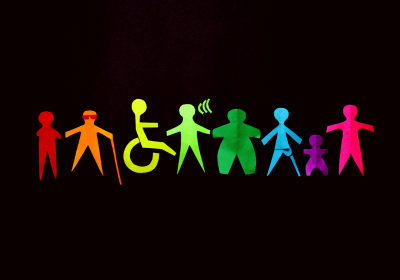
“Illegal. Immoral. Discriminatory.” Donald Trump used these words to describe Diversity, Equality and Inclusion programmes before signing an executive order to abolish them all from Federal Government. The irony is not lost here. These words are exactly what DEI seeks to protect employees from. Will this impact UK employers and businesses?
Across the pond in America this is a sizeable rock thrown against the progressive stream of equality and diversity, yet the ripple may only just reach UK shores. The UK Government’s DEI is rooted in legislation such as The Equality Act 2010 which clearly identifies protected characteristics. Among them is gender, including trans-gender identity. Further legislation already in the pipeline, such as the Employment Rights Bill and the Equality (Race and Disability) Bill, will reinforce DEI.
Companies with US-partners may review their DEI policy. Indeed, big corporate names like McDonald’s and Amazon have already released statements causing much alarm and reaction[1]. Will UK’s diversity and equality policy follow these footsteps? Occupational Health Assessment Ltd.’s recent survey found the majority of UK employers (53%) continue to support equality and diversity policies. More than 1 in every 5 (22%) would like to see DEI initiatives strengthened further and 31% felt current DEI initiatives were “about right”.[2]
DEI has been booted firmly into the firing line of criticism recently with accusations of it being tokenistic and threatening to meritocracy, raising the question of whether it is necessary? Do we need Diversity, Equality, and Inclusion in the workplace? And the answer is, yes.

The defence is already strong.
The advantages and why we need DEI are already well-documented. DEI is not just for an individual or for the company’s interest. Everyone benefits from it[3]. From a business point of view, creating a diverse and inclusive organisation improves employee retention rates, increases innovation and productivity, which in turn drives better results and reaches a wider consumer audience or workforce. A McKinsey & Company report found that companies with gender diverse executive teams were 25% more likely to have above-average profitability compared to companies without. For teams with high ethnic and cultural diversity, they were 36% more likely to financially outperform competitors.[4]

It’s not just financial performance that benefits from DEI initiatives. According to Glassdoor, 76% of job seekers and employees report that a diverse and inclusive workforce is an important factor when evaluating companies and job offers.[5]
Does the Diversity, Equality and Inclusion policy, for example, acknowledge that employees can also be parents and partners? Does the policy promote work-life balance? Is there accommodation for diverse needs such as parental leave, flexible working hours, and support for employees with disabilities? Employee satisfaction and customer loyalty are connected. Consumers are people with their own values and moral compass. In a world of “cancel culture” and “brand boycotting”, global figures indicate that objecting to a brand on moral grounds can be more damaging than a bad customer experience.[6] Companies wanting to ditch DEI should be mindful of the potential reputational cost and damage involved.
DEI is in everything every day.
DEI is a unique mirror between the world and the world of work. We live in a diverse world; we are all different. But there is one thing connecting us all and that is the need to feel safe, welcome, and respected. To work in a place, with and for people who see you and understand you.

Google’s study, Project Aristotle, identified psychological safety as one of the most important factors of a high-performing team.[7] Psychological safety is achieved directly through an open and safe work environment. The study revealed how the most productive and high-performing teams are rooted in equality and empathy, where there is a recognition of and willingness to support individual needs. All of these qualities are at the heart of DEI and their development is ongoing. In the last five years alone social movements like ‘MeToo’ and ‘Black Lives Matter’ have drawn attention to what happens when DEI issues are ignored.
Disability Inclusion and Accessibility consultant, Dr Shani Dhanda points out that, “the work you’ve done doesn’t just vanish, it keeps building, even when things feel shaky. DEI was never just about a job title or a department, it was never meant to rest on the shoulders of a few, it’s about all of us. It’s in the everyday choices we make. It’s in how we challenge systems, not just accept them.”[8]
Moving DEI forwards.
Change is inevitable, like all things in life. The tide continually moves and humans historically adapt and evolve. Diversity, Equality, and Inclusion is embedded in this concept of thriving, of movement, of progression. Trump’s executive order seeks to force DEI’s exit from the working world and the questions now flying around DEI policy shouldn’t be focused on why we have it but how we use it. How is it implemented and does it impact business? How do we meet the needs of others? Employees feel impactful when businesses have an impactful and measurable DEI policy.
Diversity, Equality and Inclusion should never stand still. The recent shaking of it is perhaps a reminder to always drive DEI forward. What this looks like will vary from organisation to organisation but the commitment and accountability starts with the leadership. Clear and consistent communication about DEI strategy and policy are essential, as are mandatory training and Employee Resource Groups (ERGs). Training should include unconscious bias, cultural competence, and inclusive practices. Regular training and education can help create a more inclusive workplace culture, especially if everyone mutually owned and accounted for their professional development.
Diversity, Equality, and Inclusion is a legal, moral and inclusive business bedrock – regardless of Trump’s move to dismantle it. It is the heartbeat of efficient and equable workforces. In other words, DEI is a constitution for people, by people and of the people it continues to protect.
Author: Helen German
Sources:
[1] Doug Melville, McDonald’s Didn’t Roll Back Their DEI Efforts—They Evolved Them, Forbes. https://www.forbes.com/sites/dougmelville/2025/01/07/mcdonalds-didnt-roll-back-their-dei-efforts-they-evolved-them/
[2] Employers expect rollback of EDI policies in the US to also impact British workplace, Occupational Health Assessment Limited. https://occupationalhealthassessment.com/2025/01/23/will-uk-edi-policies-rollback/
[3] https://www.forbes.com/councils/forbescoachescouncil/2024/05/06/10-reasons-why-dei-is-important-for-businesses-and-how-its-evolving/
[4] https://www.linkedin.com/pulse/impact-dei-financial-performance-proof-statistics-kate-hardiman-v6q7c
[5] https://www.linkedin.com/pulse/impact-dei-financial-performance-proof-statistics-kate-hardiman-v6q7c/
[6] https://www.statista.com/topics/13207/brand-boycotting-worldwide/#topicOverview
[7] https://www.forbes.com/councils/forbeshumanresourcescouncil/2021/05/19/15-key-benefits-of-dei-to-communicate-with-team-members/
[8] https://dileaders.com/blog/dei-why-does-it-matter-and-how-can-we-refocus-our-efforts/







 UK: 0844 854 9218 | International: +44 (0)1488 580017
UK: 0844 854 9218 | International: +44 (0)1488 580017








